WCAT to be wound up after schools lost £2m in collapse
- Published
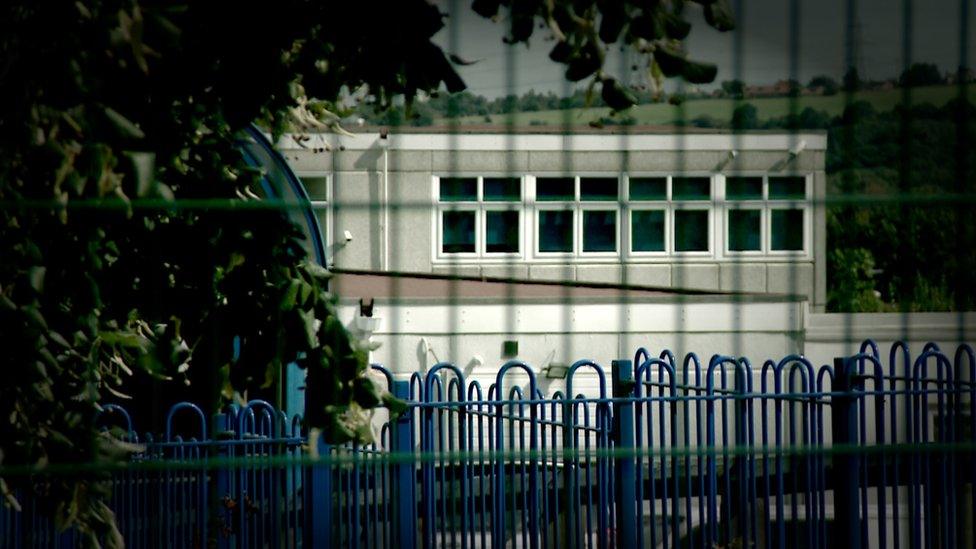
Wakefield City Academies Trust pulled out of 21 schools at the start of a new term
Schools that lost £2m when an academy trust collapsed are set to find out if they will get any of the money back after the company is wound up.
With liquidation expected to begin later this month, former staff and trustees have criticised management of Wakefield City Academies Trust (WCAT).
They said chief executive Mike Ramsay was paid more than £270,000 while teachers were left "begging" for funds.
Mr Ramsay denies any wrongdoing while at the trust.
Former office manager Kirstie Whipp said: "Anything Mike wanted Mike would get, he always had the best phone, the best laptop, best iPad, we used the most expensive equipment.
"There'd been quite a lot on the news about schools having their funding cut but that wasn't the impression, I remember thinking 'what are they all on about, there seems to be quite a lot of money in education'."
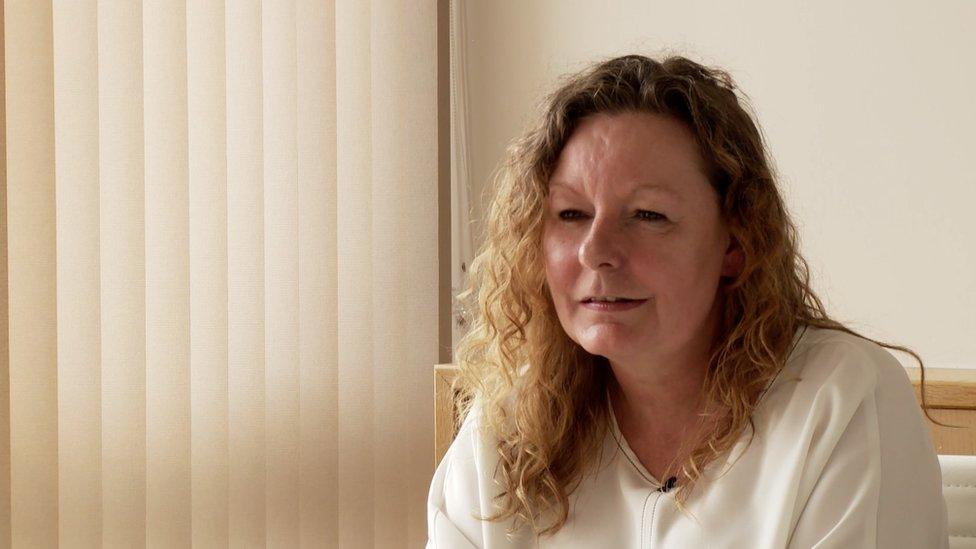
Former office manager Kirstie Whipp served in Iraq and Afghanistan with the RAF but says nothing prepared her for the mental anguish of working for WCAT
In February 2016, Mr Ramsay became the interim chief executive of WCAT, which ran 21 schools across Yorkshire.
Mrs Whipp claimed he was paid £145 per hour, claiming for "maybe 16, 17 hours a day".
She said Mr Ramsey installed £1,500 railings at WCAT's headquarters to keep his dogs in and the trust paid for them.
Mrs Whipp also claimed a tender process was "orchestrated" to let Mr Ramsay's daughter get a contract for clerking services worth £123,000.
She claimed she had to teach Hannah Ramsay how to take down the minutes and how to record them.
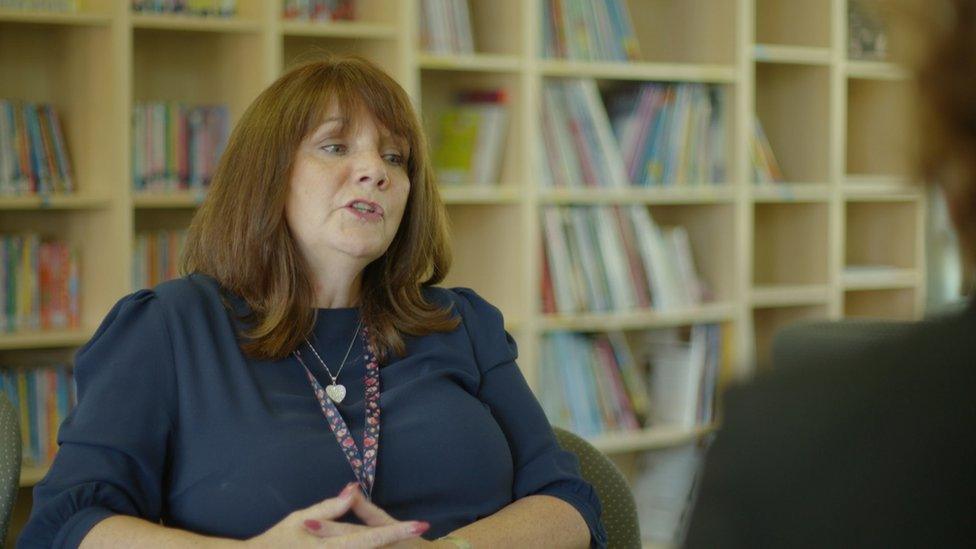
Head teacher Diane Humphrey said recruitment problems meant Waverley Academy started an academic year with 40% supply teachers
Mrs Whipp said she visited one school, Waverley Academy, and saw head teacher Diane Humphrey buffing the hall floor because she didn't have enough money to pay for a supply cleaner.
She recalled Mrs Humphrey calling up begging to speak with management.
Mrs Humphrey said she was unable to get funds for electrical and plumbing work at the 70-year-old school.
"They were difficult times," she said. "It's clear to me that WCAT was run more like a business for profit.
"I hope this will never happen again because 200 children were impacted because of the austere regime."

Steve Corne says he was sacked as a trustee after raising concerns
Accounts showed Mr Ramsay was paid £272,000 as interim chief executive plus £46,000 as adviser to the board.
His computer company, which supplied software to schools under the trust's control, received £522,000.
Former trustee Steve Corne, a professional accountant, said Mr Ramsay put together a "pitch" with options for how much he would be paid if he went from interim to full chief executive.
"He believed that he's worth plus £200,000 per annum and his justification for that was that he was in charge of a business that turned over £100m," said Mr Corne.
"I pointed out that a public company's turnover had to be obtained, whereas here we were given £100m by the government and all we had to do was control costs."
Mr Ramsay, who left WCAT in May 2017 and now runs a gym in Leeds, has issued a statement to "categorically deny" the allegations made about him.
He said there had been no conflict of interest, all connected party activity was in line with policy and scrutinised internally as well as by external audit and the government's Education and Skills Funding Agency (ESFA).
Mr Ramsay said his remuneration was less than that of the chief executive he replaced and his daughter was awarded the clerking contract through an open tender process he had no involvement in.
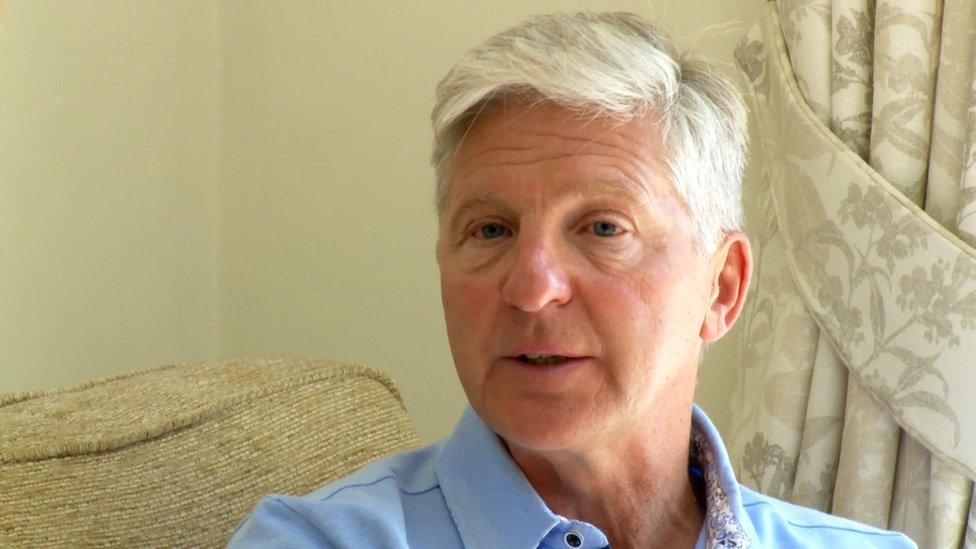
Former finance director John Beevers said WCAT "took on too many schools converted into academies too quickly"
Only four of the schools run by WCAT were rated as good or outstanding by Ofsted, with 11 out of 14 primary schools and six of the seven secondary schools performing below the national average.
In September 2017, in the first week of a new term, WCAT announced it was pulling out of running its schools because it could not rapidly improve them.
A report, leaked after the collapse, said WCAT had been "operating at a significant in-year deficit and reserves are disappearing at an alarming rate".
Accounts showed the trust spent more than £1m of public money to sack staff before announcing it was due to close.
It has also been revealed that WCAT moved cash reserves out of individual schools and into its centralised accounts.
Former finance director John Beevers said WCAT was "encouraged to centralise cash management" following a review by the Department for Education.
"That's exactly what local authorities do and exactly what other multi-academy trusts do and that was the way of managing cash to its maximum benefit," he said.

The Department for Education says all 21 WCAT schools have now been transferred to "strong academy trusts that are working to driving up standards"
In April 2018, a police investigation into the financial running of WCAT concluded no crimes were committed.
Accountancy firm Deloitte received almost £200,000 of public funds to wind up the trust, external, Schools Week has reported.
The schools have all transferred to new academy trusts with the Department for Education providing £1.75m in grants to 19 of the 21 schools.
The Department for Education said it did not know how much money, if any, was left in WCAT's accounts.
It said it would only find out after liquidation which was expected to begin on 30 September.
Any leftover funds would be distributed once the trust had met all remaining outstanding costs, including pension liabilities.
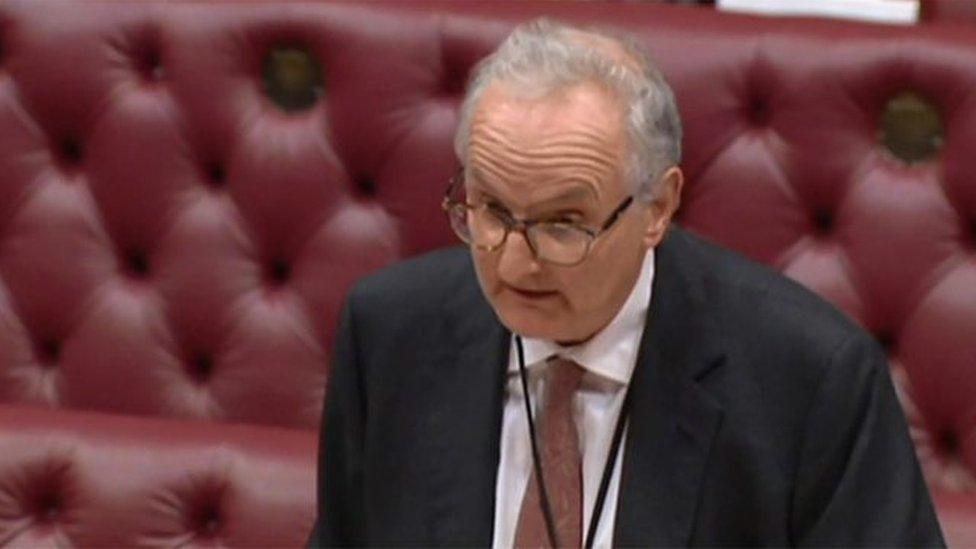
Parliamentary under secretary of state for the school system Lord Agnew said "WCAT is not representative of all academies"
Parliamentary under secretary of state for the school system Lord Agnew said new measures had been introduced to deliver more transparency over all academy finances, with academies required to declare all staff earning more than £100,000, contracts given to family or friends, and to seek approval for all related-party transactions above £20,000.
"It's simply not right to say that lessons have not been learned - we take the use of public money very seriously," said Lord Agnew.
Inside Out (Yorkshire and Lincolnshire) examines the demise of Wakefield City Academies Trust on BBC One at 19:30 BST, Monday 23 September and can be seen afterwards on the iPlayer.

Follow BBC Yorkshire on Facebook, external, Twitter, external and Instagram, external. Send your story ideas to yorkslincs.news@bbc.co.uk, external.
- Published27 April 2018
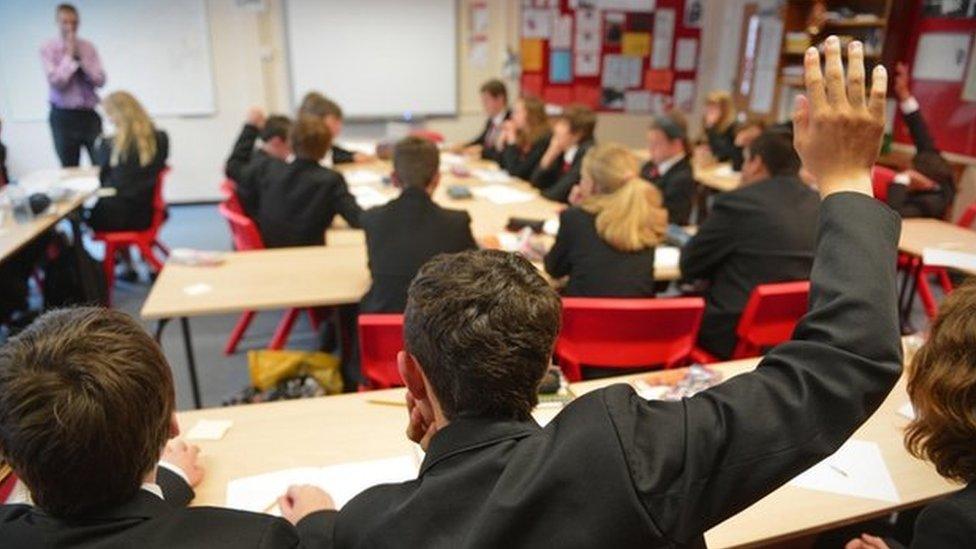
- Published10 April 2018

- Published11 January 2018

- Published13 December 2017
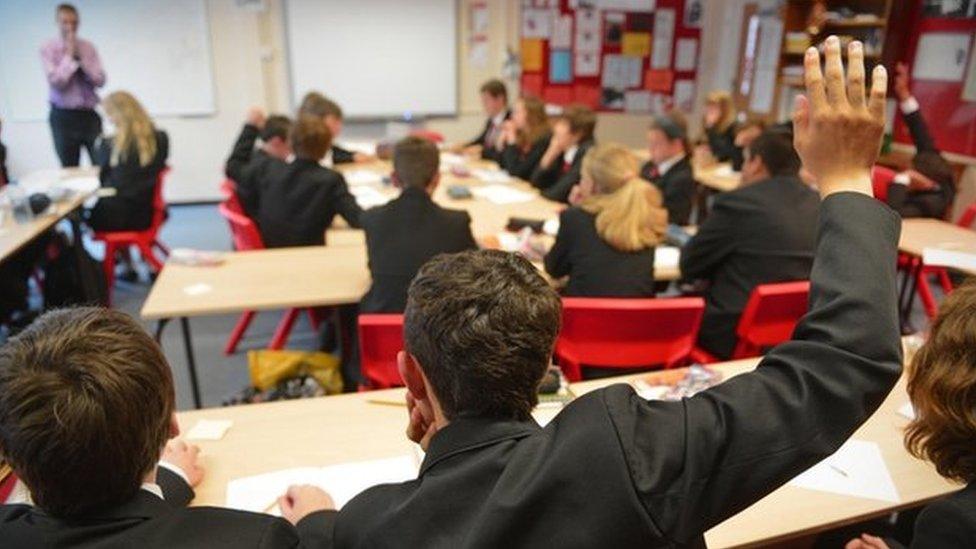
- Published22 November 2017
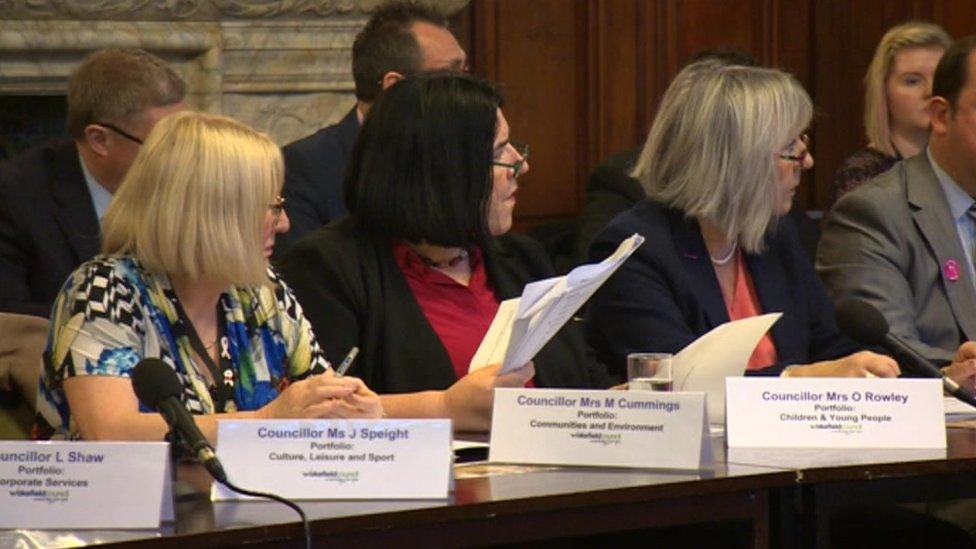
- Published27 October 2017

- Published11 October 2017

- Published30 September 2017

- Published13 September 2017

- Published8 September 2017
